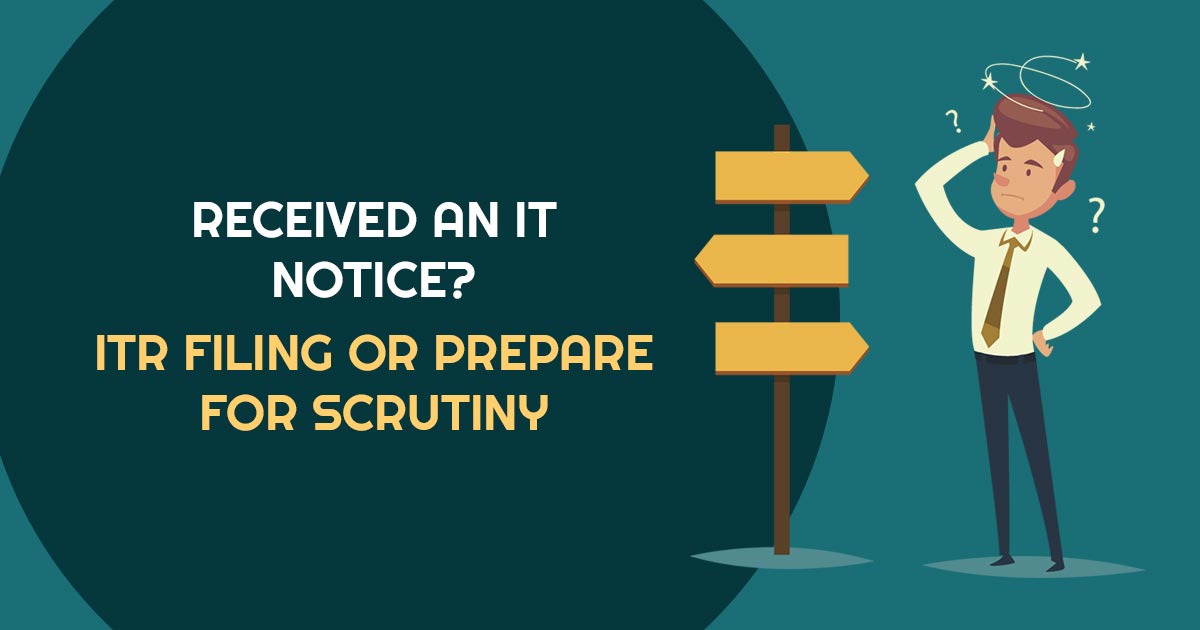Non-Filing of ITR Leads to Tax Scrutiny: What Next?

Taxpayers must file an income tax return (ITR) in response to any inquiry notice sent by the Income Tax Department. If you don't, the case will be taken under investigation. The Income Tax Act's section 142(1) authorises the issuance of the inquiry notice, which is typically sent in cases where a taxpayer has not filed their tax return or to obtain further preliminary data regarding a specific detail, such as bank interest or long-term capital gains or losses from the sale of real estate. You must reply to these notifications to avoid any fines or legal repercussions.
Comprehensive guidelines have been prepared by the Central Board of Direct Taxes (CBDT) to identify income tax filings requiring thorough examination. The purpose of these recommendations is to guarantee scrutiny for correctness and adherence to tax regulations. By applying strict scrutiny, CBDT can find fraud or discrepancies that were missed in the initial assessment, protecting the tax system's integrity and imposing uniform requirements on all taxpayers.
The guidelines issued for the present fiscal year delineate the selection process and meticulous scrutiny to be conducted for various scenarios. These encompass survey cases, search and seizure cases, instances of tax evasion, and cases where no income tax return was filed following an inquiry notice. Offering a comprehensive framework, these guidelines ensure equitable and efficient handling of such cases.
Read Also: IT Due Dates for May 2024 for Forms 61A, 3BB, 10BD, 49C and 10BE
The aforementioned material has details about numerous court cases about matters like non-registration or revocation of registration under various legal provisions. Section 12A/12AB, which deals with the registration of charitable organisations to qualify for tax benefits, is one such example.
Furthermore, if specific financial thresholds are satisfied and a taxpayer's income was previously subject to an increase on a recurrent issue, the I-T return will be subject to mandatory inspection criteria. The guidelines delineate the distinct functions and accounts of the National Faceless Assessment Centre as well as the I-T officers.
A famous tax consultant said there is no substantial change in the criteria for mandatory tax scrutiny as compared to the present scenario. In accordance with the standards, the notice must be sent by June 30, 2024, for any income tax returns filed in FY 2023–2024.
Under some circumstances, a comprehensive review, referred to as complete scrutiny, is carried out to make sure the taxpayer has accurately declared their income and has paid the necessary taxes. Through this procedure, it is ensured that the taxpayer has not made any mistakes or omissions on their income tax forms and that they have met all legal requirements.
